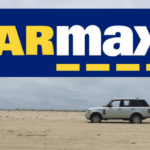We’ve heard recently of some sketchy car-selling practices by CarMax, and a recent report by Jesse Snyder of AutoNews.com only emphasizes why prospective car buyers should be wary of the business. This is an especially notable current auto news tidbit, as many consumers are now turning to their business for their next used car.
Using the data from applicable businesses in three states, Snyder writes that more than 25-percent of CarMax used cars “were found to have unprepared recall defects.” Specifically, AutoSafety.org examined nearly 1,700 cars from eight CarMax locations in Connecticut, Massachusetts, and California. At the end of the study, the group found that 27-percent of the cars had “at least one open recall.” This is a stark increase from a 2015 study, as the percentage has nearly doubled in that time. Of the more than 460 vehicles that indeed did have a recall defect, around 10-percent of them hadn’t gone through any repairs.
“CarMax is selling huge numbers of unsafe, defective recalled cars that are ticking automotive
time bombs. They pose a serious threat to the safety of all American motorists and their families,” said Rosemary Shahan, the President of the Consumers for Auto Reliability and Safety (CARS) Foundation (via AutoSafety.org).
Deirdre Cummings, the Consumer Program Director for a Massachusetts consumer protection organization, echoed these sentiments about the business.
“Over the last two years CarMax has expanded across the state. Meanwhile our survey found
one in four of their cars for sale is unsafe,” said Deirdre Cummings, Consumer Program Director for MASSPIRG Education Fund, a non-profit consumer protection organization in Massachusetts. “No one should have to gamble with their safety or the safety of those who share the roadways.”
For those unfamiliar with the business model, CarMax offers to sell vehicles (or buy vehicles) with the utmost convenience. These dealerships offer no-haggle buying experiences, meaning it’s essentially one-price shopping. For those looking for a stress-free experience, CarMax is usually the route they opt for. Of course, this also means that these consumers often opt for a bad deal… but that will be the least of their concerns if they’re stuck with a faulty car.
As the AutoSafety.org report showed, there were a number of notable indiscretions:
- 27% of vehicles had “unrepaired safety recalls”
- 20% of available vehicles had “at least one unprepared defect subject to a safety recall”
- In three specific locations, 30% of available vehicles “had at least one unprepared safety recall defect.”
- In 2015, a Hartford, Connecticut CarMax had 10% of available vehicles with unprepared safety recalls. In recent study, this number jumped to 28%.
- 43 of the analyzed vehicles “had unprepared safety recalls for which no repairs are available, so consumers who purchase them are stuck driving unsafe cars for an indefinite period before they can get the cars repaired.”
“For a customer at CarMax, about one out of four cars they look at will contain an unsafe
recalled part,” said Gideon Weissman, the co-author of the report. “Those are bad odds, and far worse than the results of surveys from just two years ago.”
These revelations would be particularly worrisome for any type of dealership, but it’s especially troublesome considering how popular CarMax has gotten in recent years. The business sold more than 600,000 vehicles in 2016, making it the leading retailer of used cars in the United States. While it’s already plenty concerning that the brand is selling vehicles with unresolved defects, they’re also marketing their cars as “CarMax Quality Certified,” which is seemingly untrue.
“Recalls happen when there is an unreasonable safety risk or the car fails to meet a safety
standard. Evidence of these defects is readily available to CarMax and calling an unrepaired recalled car ‘safe’ is deceptive on its face,” said Jason Levine, the Executive Director of the Center for Auto Safety.
Predictably, CarMax released a statement to Automotive News defending their transparency:
“CarMax has led the industry in recall transparency and shares vehicle-specific recall information in-store and online,” the company said. “Every vehicle on carmax.com and on CarMax’s mobile apps includes a link to the National Highway Traffic Safety Administration recall lookup website, with the VIN pre-populated, allowing customers to obtain open recall information on any CarMax used vehicle. Before any customer purchases a used vehicle, a CarMax associate and the customer review the recall information available on the NHTSA website. After this initial review, customers sign a form acknowledging receipt of the NHTSA recall information prior to signing sales documents.”
“We are dedicated to making sure our customers know about open recalls prior to purchase,” added Cliff Wood, CarMax COO. “Nothing is more important than being transparent and honest with our customers.”
Could CarMax face some legal repercussions? Snyder explains that “selling used cars with unrepaired safety defects under recall is not prohibited under federal law,” although both the Federal Trade Commission and the New York Attorney General’s Office have both disputed this stance. However, the writer notes that it is indeed “illegal to sell new cars with safety recalls that have not been remedied,” although this final note isn’t especially applicable to the current issue.
Ultimately, consumers groups are calling for state governments to start monitoring these dangerous car-selling strategies. Rosemary Shahan, the current president for the Auto Reliability and Safety Foundation, is requesting actual legislation.
“There are more recalled vehicles out there than before,” she said. “We are demanding that state law enforcement officials crack down on CarMax and other dealers who are engaging in these practices.
“Almost everybody feels used cars for sale should be safe.”
Ultimately, this explains why consumers should have a private mechanic inspect their vehicle before committing to a purchase. Unfortunately, considering CarMax’s rules (and supposed transparency), this isn’t possible. In other words, it’s in your best interest to pursue a vehicle from a traditional dealership. That way, if you do run into any issues, you’ll surely know about them before you make the purchase.



